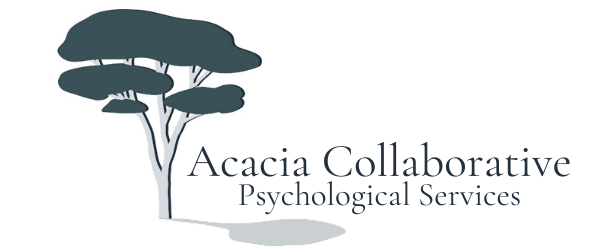
[accordion title=”Couples”]Our expertise in couples therapy covers all stages of relationships from premarital to empty nest and retirement. Common issues with which we have helped couples include communication, adjusting to becoming parents, rebuilding after infidelity, navigating significant decisions together, processing the dissolution of the relationship, and increasing emotional and physical intimacy.
One way we help couples is to be an objective third party to guide you in better communication about the issues that are preventing you from enjoying each other. Many people enter couples therapy expecting the therapist to “join forces” with their partner and continue the blame they feel at home. Our work with couples is quite the opposite and focuses on understanding each person’s point of view and coming to resolutions that work for everyone.
Expertise in couples therapy means we understand the typical struggles of where you are in the development of your relationship. We can see what you are trying to communicate in the fight you’ve had a thousand times and show you a new more effective way to get where you’re trying to go. We can help you remember what made you fall in love with your partner before all the pain started.
We welcome relationships of all genders and sexualities. [/accordion]
[accordion title=”Addiction”]Addiction is a disease of the brain which interferes with our natural reward system and greatly disrupts one’s judgment and motivation. In addition to the physiological impacts of addiction, it can wreck havoc on one’s personal life by destroying relationships, disrupting one’s overall ability to function, and leading to mental health disorders such as depression and anxiety. Just as you would seek treatment for diseases such as diabetes or hypertension, it is critical to seek treatment for disease of addiction. At Acacia Collaborative we use a combination of Motivational Interviewing and Cognitive Behavioral Therapy which have be researched and found to be effective in treating individuals with addiction. With motivational interviewing, your therapist will work with you to encourage you to find your own intrinsic motivation for making positive changes in your life. With Cognitive Behavioral Therapy, your therapist will discuss and challenge the negative thoughts and behaviors that are present, which perpetuate your addiction and risk for relapse. [/accordion]
[accordion title=”Eating Disorders”]Eating disorders are both serious and complicated illnesses. Individuals struggling with an eating disorder experience intense emotions, and intrusive or even obsessive thoughts about food, weight, size, and body image. Many times we find that an eating disorder develops as way for someone to find a sense of control, distraction, or comfort in a world where they feel their emotions and thoughts are unmanageable. However, as the eating disorder progresses it often leads to a greater loss of control and can result in significant risks for one’s physical and mental health. At Acacia Collaborative we use Cognitive Behavioral Therapy, Acceptance Commitment Therapy, and Dialectic Behavioral Therapy to help individuals identify and manage the uncomfortable thoughts and emotions that lead to eating disordered behaviors. These therapies are evidenced based and shown to be highly effective in treating eating disorders. [/accordion]
[accordion title=”Grief”]For many people, losing someone is the most intense pain you will ever feel. Sometimes the “someone” is not even someone you have ever met, for example, in the experiences of infertility and pregnancy loss. Sometimes the loss is a marriage that has ended, a dream that has not come true, a career never fulfilled, or partner never found. Sometimes the loss is about having a parent who did not act in a way that led you to feel safe and secure.
Our approach to grief work is active and different from the conventional idea of passing through stages. We believe there are specific tasks a grieving person can work toward that can prevent becoming “stuck” in grief. If you are already feeling stuck in grief, we will listen to your experiences and find ways that work for you about moving forward while also acknowledging what was lost. Additionally, grief therapy gives you a space to be as sad as you need to be without the fear of being a “burden” on family or friends. It can also give you a space to question the way you are grieving, if that is a concern for you, without judgment from others. Because grief is an area of expertise here, we can help you identify the thoughts commonly associated with loss you may be having that are maintaining your pain and then help you change those when you are feeling ready. [/accordion]
[accordion title=”Trauma/abuse/PTSD”]Our expertise in helping those with trauma include events occurring in both childhood and in adulthood, involving emotional, physical, and sexual abuse, as well as other life-threatening events like car accidents, military-related trauma, and other acts of violence. We are trained in research-based trauma and cognitive processing therapies. We understand you are unknowingly trying to fit your ideas about the trauma you experienced with your pre-existing ideas about yourself, others, and the world. Many times these ideas do not fit together and the tension from that causes the brain to continue to re-experience the trauma. Once you are feeling safe, both in therapy and outside of therapy, we will explore your experience of trauma and find a way to successfully integrate the events into your history, as you will no longer need to rely on avoidance of reminders of the events to cope with your everyday life. [/accordion]
[accordion title=”Psychoeducational Assessment”]Our expertise includes assessment designed to answer questions related to school performance, including Early Entry to Kindergarten, ADD/ADHD, and learning differences. We utilize assessments approved by the Wake, Durham, and Orange school systems and our reports can be used to contribute to the development of Individualized Education Plans (IEPs) and support ideas for academic accommodations. [/accordion]
[accordion title=”Depression and anxiety”]Depression and anxiety are the most common mental health issues and each affect roughly 20% of the population. 10% of the population experiences both at a clinical level. Our expertise in working with depression and anxiety include situational triggers, depression and anxiety that comes and goes, and chronic depression and anxiety. Our approach includes creating and strengthening coping skills and resilience, increasing self-care, identifying and decreasing triggers, brainstorming new behavioral habits, and changing thought patterns that maintain depression and anxiety. Therapy for depression and anxiety is customized for your interpersonal style and can include processing your most current struggles, identifying the significance of past experiences, and structured exercises to increase skills. [/accordion]
[accordion title=”Postpartum Depression”]It’s not uncommon for women to feel emotional or anxious following childbirth. There is a natural shift in hormones during this time which lends itself to changes in mood, not to mention the added impact of sleep deprivation and adjustment to new life as a parent. For many women, this may last a few weeks and is typically referred to as the “baby blues.” However, when symptoms persist beyond those first few weeks and begin to interfere with a mother’s ability to cope, function, care for, or bond with her child, then it falls in the category of postpartum depression or anxiety. If you find yourself in this category it is important to seek out support and help. At Acacia Collaborative we use Cognitive Behavioral Therapy, Dialectic Behavioral Therapy, and Acceptance Commitment Therapy, to work with new mothers struggling with postpartum related issues. Utilizing these approaches to therapy, we help women process the range of emotions that come along with childbirth and new parenthood; we work together to address negative and unrealistic thoughts which feed into depression and anxiety; and we identify specific ways of coping with the symptoms, stressors, and significant life transition that they are experiencing. With appropriate treatment and support in place, women can experience significant improvement in postpartum symptoms and a greater ability to take on and cope with the challenges of parenthood.[/accordion]
[accordion title=”ADHD”]Our expertise in helping those with Attention-Deficit/Hyperactivity Disorder includes both therapy and evaluation. ADHD can be very disruptive to school, work, and family functioning. It can present in similar ways as many other mental health difficulties. Through evaluation, we can help discern if the difficulties you or your child are experiencing are related to ADHD, another mental health disorder, a combination, or are normal difficulties. As part of the evaluation process, you will receive a report you can use for an IEP meeting, to request accommodations at your place of employment, or to bring to your medication prescriber. Should you find it helpful, we are happy to accompany you to any of these meetings to advocate for and with you.
Therapy for ADHD includes accurately identifying ADHD symptoms and how they are presenting in your or your child’s life, increasing understanding of how ADHD brains work differently, and customizing organization and focus techniques for your lifestyle. It is common to incorporate family members in therapy for ADHD to better reinforce new strategies and routines. Because many people with ADHD also experience thoughts that contribute to depression and anxiety, we check for those as well and use Cognitive Behavior Therapy to address them.[/accordion]
[accordion title=”Parent Coaching”]There’s a popular saying, “Kids don’t come with an instruction manual.” If you have been to any parenting section of a bookstore; however, it seems like there are THOUSANDS of manuals from which to choose. Most parents we work with know they do not want to parent the way their parents did but are at a loss about what they should be doing. This varies from general parenting approaches to parenting through a very specific circumstance like divorce, behavior issues, or school difficulties. We work with you to find what is right for your family and create plans that are supported by research to be helpful for your children. We can help you work through parenting hurdles to create a family culture of love and support.[/accordion]
[accordion title=”Family therapy”]Our expertise in family therapy allows us to observe and identify how the members of your family are coming together to create its specific dynamic. We highlight how the family works together in ways that are healthy and collaborate with members to change unhealthy patterns. Some signs that family therapy might be the best modality for your family include: one member seems to display very strong emotions while the rest of the family does not, members seem to function well on their own but there is frequent conflict when members interact, and one or more members of the family complain they are not supported or understood by other members.[/accordion]
